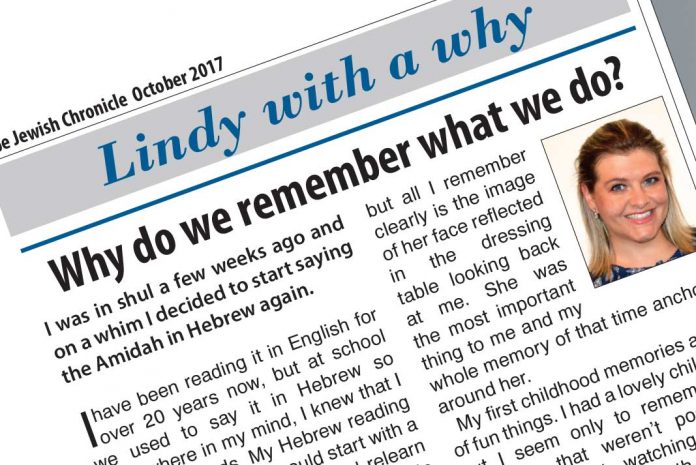I was in shul a few weeks ago and on a whim, I decided to start saying the Amidah in Hebrew again.
I have been reading it in English for over 20 years now, but at school, we used to say it in Hebrew so somewhere in my mind, I knew that I knew the words. My Hebrew reading is fair, so I figured I would start with a passage here and there and relearn them. Well, my mind just kicked into gear, and after two decades the words just came into my head again. There was the Amidah, in Hebrew, waiting for me to say it. It had waited a long time.
We experience the world through our senses, and in turn, our memories are things we have sensed, through our touch, taste, hearing, sight, and smell. As you sense and make sense of the world around you, your brain saves the information you think is important to save.
The most important information makes its way from your short-term to your long-term memory, which doesn’t have the same limitations as short-term memory. The human brain appears to be able to hold an unlimited number of long-term memories for an indefinite amount of time. This is why I remembered how to say the Amidah in Hebrew after 20 years of no practice; it had been placed in my long-term memory through years and years (and years) of early morning prayers; thanks, Herzlia!
Unfortunately, without the repetition, my mind is a bit of a sieve when it comes to remembering.
My mother and I were recently chatting about my childhood and the details I recalled were very telling. When I was eight we lived in a house for a short while. I don’t remember anything about the house at all, except sitting on the edge of my mom’s bed watching her get ready for work. I must have had a bedroom, the house had a front door, a garden, a kitchen, I had friends and a school, but all I remember clearly is the image of her face reflected in the dressing table looking back at me. She was the most important thing to me and my whole memory of that time anchored around her.
My first childhood memories are not of fun things. I had a lovely childhood, but I seem only to remember the incidents that weren’t positive; A haircut I hated, watching It which scared me half to death and firmly removed any positive feelings I had about clowns, as well as other small slights that children feel.
Now we are trying to help our children anchor their senses around positive memories for their adulthoods. One of the tools we use to do this is giving them books as gifts. I write the reason for the gift in the front, with the date. I let them watch me write. We read it together. Now, when they reread that book in 10 years time, there will be many sensory triggers to help them recall the precious memory. The sight of the message, the sound of our voices reading it, the feel of the book and the rush of good feelings for a job well done.
We also give them each a book in the school holidays, and we stick a calendar of what we did each day at the back. We often sit at bedtime and read the calendars from years gone by before we read the actual story. And they re-remember those simple, precious events.
This is a tool we can use with children, but also with ourselves as adults. Try anchor your memory around the next wonderful thing that happens. It can be small, as long as it’s something positive. Make sure you remember the occasion, go make a long-term memory out of something good.
You’ll thank yourself in 10 years time.











